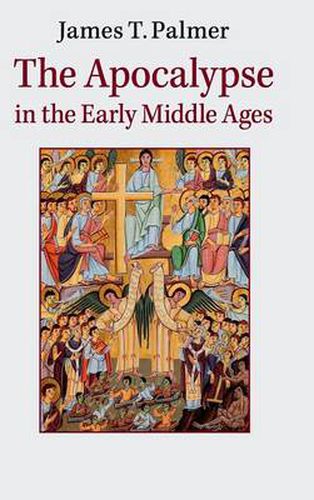Readings Newsletter
Become a Readings Member to make your shopping experience even easier.
Sign in or sign up for free!
You’re not far away from qualifying for FREE standard shipping within Australia
You’ve qualified for FREE standard shipping within Australia
The cart is loading…






This groundbreaking study reveals the distinctive impact of apocalyptic ideas about time, evil and power on church and society in the Latin West, c.400-c.1050. Drawing on evidence from late antiquity, the Frankish kingdoms, Anglo-Saxon England, Spain and Byzantium and sociological models, James Palmer shows that apocalyptic thought was a more powerful part of mainstream political ideologies and religious reform than many historians believe. Moving beyond the standard ‘Terrors of the Year 1000’, The Apocalypse in the Early Middle Ages opens up broader perspectives on heresy, the Antichrist and Last World Emperor legends, chronography, and the relationship between eschatology and apocalypticism. In the process, it offers reassessments of the worlds of Augustine, Gregory of Tours, Bede, Charlemagne and the Ottonians, providing a wide-ranging and up-to-date survey of medieval apocalyptic thought. This is the first full-length English-language treatment of a fundamental and controversial part of medieval religion and society.
$9.00 standard shipping within Australia
FREE standard shipping within Australia for orders over $100.00
Express & International shipping calculated at checkout
This groundbreaking study reveals the distinctive impact of apocalyptic ideas about time, evil and power on church and society in the Latin West, c.400-c.1050. Drawing on evidence from late antiquity, the Frankish kingdoms, Anglo-Saxon England, Spain and Byzantium and sociological models, James Palmer shows that apocalyptic thought was a more powerful part of mainstream political ideologies and religious reform than many historians believe. Moving beyond the standard ‘Terrors of the Year 1000’, The Apocalypse in the Early Middle Ages opens up broader perspectives on heresy, the Antichrist and Last World Emperor legends, chronography, and the relationship between eschatology and apocalypticism. In the process, it offers reassessments of the worlds of Augustine, Gregory of Tours, Bede, Charlemagne and the Ottonians, providing a wide-ranging and up-to-date survey of medieval apocalyptic thought. This is the first full-length English-language treatment of a fundamental and controversial part of medieval religion and society.